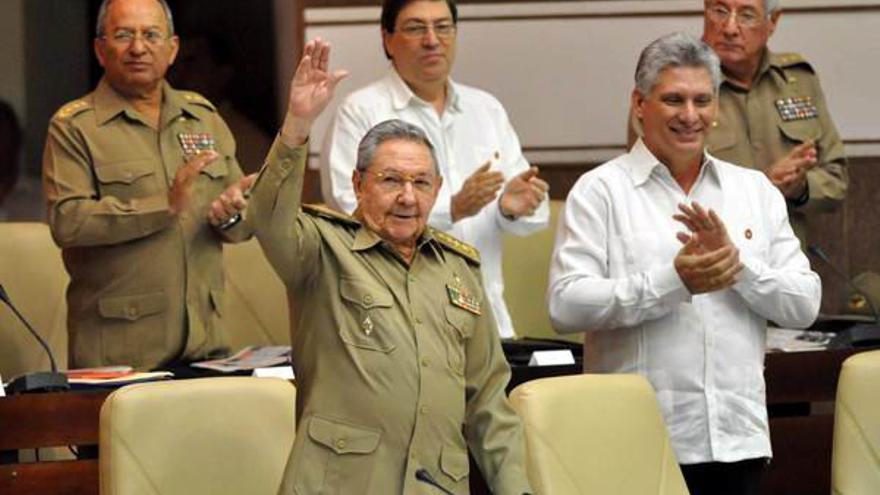
![]() 14ymedio, Havana, 16 April 2018 — The meeting for the constitution of the new Parliament, the last step in the process that will culminate in the replacement of Raul Castro in the presidency, will begin on Wednesday, 18 April, a day before originally planned, according to Cuba’s official media.
14ymedio, Havana, 16 April 2018 — The meeting for the constitution of the new Parliament, the last step in the process that will culminate in the replacement of Raul Castro in the presidency, will begin on Wednesday, 18 April, a day before originally planned, according to Cuba’s official media.
According to a statement from the Council of State published in the press, this decision has been adopted to “facilitate the development of the steps required by a session of such importance.”
The Constitutive Session of the IX Legislature of the National Assembly of People’s Power will begin on Wednesday, April 18, 2018, at 9 o’clock in the morning at the Palace of Conventions in Havana.
The surprise announcement does not specify at what exact moment, on Wednesday or Thursday, the successor of the current head of state will be designated.
The Cuban leader had announced he would depart from power on 24 February 2018, but the date was postponed until 19 April “due to the effects of Hurricane Irma.”
Both the president of the Council of State, who is also the head of the Cuban State, as well as the first vice president, the five vice presidents and the other members are elected by the deputies of the National Assembly.
The National Candidacy Commission consults each of the 605 deputies of the National Assembly and prepares a single list of 31 candidates for the 31 members of the State Council, including the President.
The National Assembly approves this list by a show of hands vote. Should the list not receive 50% of the votes, something that has never happened, the process is repeated and the Nominations Committee draws up a new list. Once the list is approved, a secret vote of the deputies is held to elect the eight principal positions of the Council of State.
Most of the experts believe that the candidate for president will be the current first vice president, Miguel Díaz-Canel. The length of the presidential term on the island is five years and an individual can only serve two terms, for a total of 10 years in power.
Article 68 of the Electoral Law establishes that the Commission in charge of preparing the proposal to be voted upon by the Parliament is composed of “mass organizations,” such as the Cuban Workers Center, the Federation of Cuban Women, the National Association of Small Farmers, the Committees for the Defense of the Revolution, the University Student Federation and the Secondary Education Student Federation. All these organizations are linked to the government and are considered transmitters for the Guidelines emanating from the Plaza of the Revolution.
Outside the official scope, diverse experts in the Cuban electoral process agree in pointing out that, although the system presents the National Assembly as an expression of the plurality of the nation because of its composition in terms of sex, ages and race, it lacks political representativeness because almost all of its members belong to the Communist Party or the Young Communists union.
The candidacy commissions, according to the same experts, act as a screen to eliminate those candidates who represent a danger to the system or who have critical opinions.
Of the delegates who will vote for the next president of Cuba, 89.25% were born after Fidel Castro’s seizure of power in 1959.
_____________________________
The 14ymedio team is committed to serious journalism that reflects the reality of deep Cuba. Thank you for joining us on this long road. We invite you to continue supporting us, but this time by becoming a member of 14ymedio. Together we can continue to transform journalism in Cuba.
